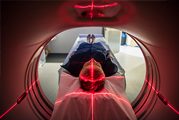Highlights of day five coverage from APA’s Annual Meeting include a tribute to the late...
Novel Treatments for BPD, Gun Talk, and More From APA’s 2018 Annual Meeting: Day Five
Highlights of day five coverage from APA’s Annual Meeting include novel interventions for treating patients with borderline personality disorder, tips on how to talk with your patients about firearms, and reflections on how identifying neural circuit dysfunction could transform psychiatry.
Look for future coverage of APA’s 2018 Annual Meeting in upcoming issues of Psychiatric News.
Among other areas of focus, the National Institute on Drug Abuse (NIDA) is paying close attention to what the decision to legalize marijuana in many states across the country will mean for the long-term health of Americans, particularly adolescents, and remains heavily invested in finding new medications for pain that are effective but not addictive. Read More >
During the 2018 Judd Marmor Award lecture, Schatzberg described decades of research that has advanced understandings of psychotic depression. Read More >
Psychoeducation, family support, and ketamine augmentation may be able to help patients with borderline personality disorder. Read More >
Adolescence is known as a time of vulnerability for the start of mental disorders and substance use, but not enough is known about normal brain development. To fill that gap, a collaborative federal program is starting to take a comprehensive look at young Americans.
Read More >
It is possible—and necessary—to hold a conversation with patients that enables them to move incrementally to safer gun storage practices drawing on the principles of motivational interviewing. Read More >
Psychiatrist Amit Etkin, M.D., Ph.D., sees a gathering wave that will transform how mental illness is perceived, identified, treated, and monitored in the coming years.
Read More >
Look for future coverage of APA’s 2018 Annual Meeting in upcoming issues of Psychiatric News.
Nora Volkow, M.D., Outlines NIDA’s Marijuana, Opioid Research Goals
 |
Alan Schatzberg, M.D., Honored for Research Connecting Cortisol and Psychotic Depression
 |
Researchers Describe Novel Interventions for Borderline Personality Disorder
 |
Grown-Up Researchers Look Closely at Young Minds in Major New Study
 |
Read More >
Talking About Firearms With Patients Necessary, But Examine Your Gun Beliefs First
 |
Researcher Investigates Brain Neurocircuits to Better Understand Mental Illness
 |
Read More >





